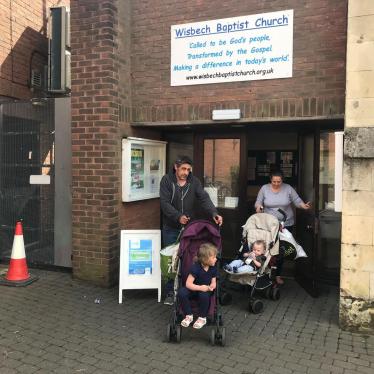Newly published data show that 5.2 million children in the United Kingdom – 36 percent of all children in the country – live in poverty. While the government announced a Child Poverty Taskforce to study the issue, the scale of the problem and its daily impact on kids’ lives and rights, require immediate action. That should start with abolishing the two-child limit social security policy which pushes children into poverty.
The data come from a new measurement developed by the independent Social Metrics Commission (SMC), which is being integrated into UK government statistics. This is a good step for getting a more accurate picture of poverty, which Human Rights Watch has called for since 2019.
According to the SMC’s data, half of those children in poverty live in families with three or more children and half also are in households where the youngest child is under five.
This is, in part, the outcome of the UK’s “two-child limit,” which cuts off child-related social security support to low-income households after the second child, hurting large families. Civil society groups have warned against the policy since it was introduced by the previous government in April 2017.
Despite clear evidence that the two-child limit is driving increasing child poverty and mounting pressure, including from within its ranks, the Labour government has so far resisted calls to repeal it, missing an opportunity to do so in the October budget.
The government instead points to the child poverty taskforce it set up in July, though neither the taskforce’s terms of reference nor its strategy framework mention the two-child limit beyond references to “considering social security reforms.”
Tackling child poverty requires addressing structural factors such as wage and benefit levels, housing costs, childcare provision, and nutrition, as well as developing coordinated strategies, which take time. A taskforce can and should do those things.
But delaying action to end the two-child limit while waiting for the findings and recommendations of a taskforce means leaving more children exposed to poverty and its harmful impact on their rights.
Children in families making decisions about whether their low incomes will stretch to pay for food, electricity, or new school shoes, do not have the luxury of time.










